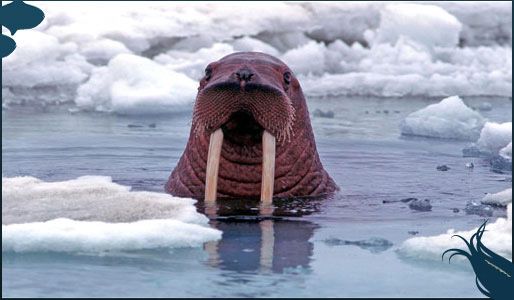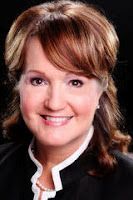UnrepentantLiberal
UnrepentantLiberal's JournalShell's Arctic drilling: The environmental battle of our time

By Blake Deppe
People's World
July 3, 2012
On July 27, two Shell vessels departed from Seattle, en route to the Arctic's Beaufort and Chukchi seas -- and the fragile ecosystems that lay within. The oil company plans to begin exploratory drilling there, putting the area at deadly risk. Finally, environmental activists have said "no more." They -- with scientists -- will travel to the Arctic, backed by state-of-the-art technology, to determine what is at risk, and to keep a watchful eye on the careless oil corporation.
Shell's Kulluk and Noble Discoverer began their trek mere hours after Greenpeace Senior Oceans Campaigner Jackie Dragon announced, "Shell has spent $4 billion buying its way into the Arctic, but now a global movement is mobilizing to protect this region for good."
Dragon spoke her words as she stood in solidarity with activists and scientists aboard Greenpeace ship Esperanza, which is now beginning its own trip to the Arctic.
"While America suffers the impacts of global warming from Florida to Texas," she continued, "Shell wants to exploit melting sea ice in the Arctic to drill for more fossil fuels. We're on our way up to Alaska's pristine waters with hundreds of thousands of others to draw a line in the ice and say 'no further.' This is now one of the defining environmental battles of our age."
When the Esperanza and its crew arrive at the Chukchi drill sites, cutting-edge submarines will accompany it; they will document the risk factors involved with Arctic oil drilling from the sea floor upward. Also coming along will be an observational drone (a major shift, as drones have previously been largely thought of as the de facto eyes and ears of the military and Big Business). Rigid-hulled inflatable boats -- often used by the U.S. Navy -- will also be used by Greenpeace activists.
More: http://peoplesworld.org/shell-s-arctic-drilling-the-environmental-battle-of-our-time/
BACKFIRED: Louisiana GOP Angry That Muslims Can Use School Vouchers

GOP legislators in Louisiana have realized to their horror that their bill to provide vouchers for private religious schools can actually be used by Muslims.

Rep. Valarie Hodges, a Republican who represents East Baton Rouge and Livingston, now says she wishes she hadn’t voted for the Jindal voucher bill. “I actually support funding for teaching the fundamentals of America’s Founding Fathers’ religion, which is Christianity, in public schools or private schools,” Hodges told the Livingston Parish News. "I liked the idea of giving parents the option of sending their children to a public school or a Christian school,” Hodges added. The newspaper reported that she “mistakenly assumed that ‘religious’ meant ‘Christian.’” “Unfortunately it will not be limited to the Founders’ religion,” Hodges told the News. “We need to insure that it does not open the door to fund radical Islam schools. There are a thousand Muslim schools that have sprung up recently. I do not support using public funds for teaching Islam anywhere here in Louisiana.”
Americans United for the Separation of Church and State writes:
Some legislators aren’t comfortable funding Muslim schools. What’s to be done? How about not establishing these programs in the first place? Let Muslims fund Muslim schools. Let Catholics fund Catholics ones. Let fundamentalist Protestants pay for the conservative Christian academies and so on.
The law has already gone into effect and provides for no state oversight regarding curriculum or educational standards.
More: http://www.joemygod.blogspot.com/2012/07/backfired-louisiana-gop-angry-that.html
Ten Historic Female Scientists You Should Know
Before Marie Curie, these women dedicated their lives to science and made significant advances
When it comes to the topic of women in science, Marie Curie usually dominates the conversation. After all, she discovered two elements, was the first women to win a Nobel Prize, in 1903, and was the first person to win a second Nobel, in 1911. But Curie was not the first female scientist. Many other brilliant, dedicated and determined women have pursued science over the years.
Emilie du Chatelet (1706 –1749)
Gabrielle-Emilie Le Tonnelier de Breteuil, the daughter of the French court’s chief of protocol, married the marquis du Chatelet in 1725. She lived the life of a courtier and bore three children. But at age 27, she began studying mathematics seriously and then branched into physics. This interest intensified as she began an affair with the philosopher Voltaire, who also had a love of science. Their scientific collaborations—they outfitted a laboratory at du Chatelet’s home, Chateau de Cirey, and, in a bit of a competition, each entered an essay into a contest on the nature of fire (neither won)—outlasted their romance. Du Chatelet’s most lasting contribution to science was her French translation of Isaac Newton’s Principia, which is still in use today. At age 43, she fell in love with a young military officer and became pregnant; she died following complications during the birth of their child.
Caroline Herschel (1750 –1848)
Herschel was little more than the household drudge for her parents in Hanover, Germany (she would later describe herself as the “Cinderella of the family”), when her older brother, William, brought her to England in 1772 to run his household in Bath. After she mastered the art of singing—to accompany William, who was the organist for the Octagon Chapel—her brother switched careers and went into astronomy. Caroline followed. In addition to assisting her brother in his observations and in the building of telescopes, Caroline became a brilliant astronomer in her own right, discovering new nebulae and star clusters. She was the first woman to discover a comet (she discovered eight in total) and the first to have her work published by the Royal Society. She was also the first British woman to get paid for her scientific work, when William, who had been named the king’s personal astronomer after his discovery of Uranus in 1781, persuaded his patron to reward his assistant with an annual salary. After William’s death in 1822, Caroline retired to Hanover. There she continued her astronomical work, compiling a catalogue of nebulae—the Herschels’ work had increased the number of known star clusters from 100 to 2,500. She died in 1848 at age 97 after receiving many honors in her field, including a gold medal from the Royal Astronomical Society.
Mary Anning (1799 –1847)
In 1811, Mary Anning’s brother spotted what he thought was a crocodile skeleton in a seaside cliff near the family’s Lyme Regis,England, home. He charged his 11-year-old sister with its recovery, and she eventually dug out a skull and 60 vertebrae, selling them to a private collector for £23. This find was no croc, though, and was eventually named Ichthyosaurus,the “fish-lizard.” Thus began Anning’s long career as a fossil hunter. In addition to ichthyosaurs, she found long-necked plesiosaurs, a pterodactyl and hundreds, possibly thousands, of other fossils that helped scientists to draw a picture of the marine world 200 million to 140 million years ago during the Jurassic. She had little formal education and so taught herself anatomy, geology, paleontology and scientific illustration. Scientists of the time traveled from as far away as New York City to Lyme Regis to consult and hunt for fossils with Anning.
More: http://www.smithsonianmag.com/science-nature/Ten-Historic-Female-Scientists-You-Should-Know.html
Colorado wildfire: Front Range blazes may mean bear trouble
By William Porter
The Denver Post
June 30, 2012
For all the destruction that Front Range wildfires have wreaked on people and their homes, officials are also warning that burned-out natural habitat will cause problems for a local bear population already stressed by a long dry spell and poor foraging.
The upshot: During fire season, more hungry bears than usual will be sniffing around residential neighborhoods and dumpsters containing food spoiled by fire-induced power outages.
And as any wildlife expert will tell you, a garbage bear too often becomes a dead bear — shot or euthanized as a safety measure because it has grown too bold.
"This year we're asking people to be extraordinarily careful about what they leave out," said Theo Stein, manager of external relations for Colorado Parks and Wildlife. "That includes dog food, bird feeders and greasy grills. In the aftermath of the fires, if we don't get moisture for a green-up, we're going to see a lot of hungry bears."
More: http://www.denverpost.com/recommended/ci_20976456?refresh=no&webredirect=&stopvalue=&stopparam=
Profile Information
Name: BradGender: Male
Home country: USA
Current location: Jersey City, NJ
Member since: Sat Mar 15, 2008, 12:21 PM
Number of posts: 11,700
